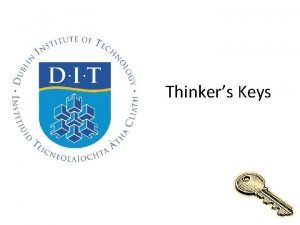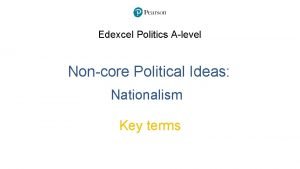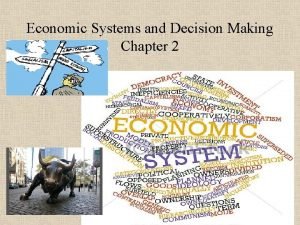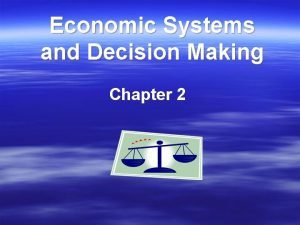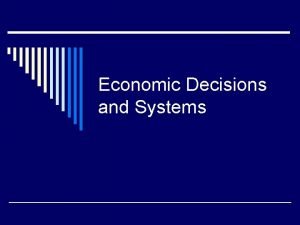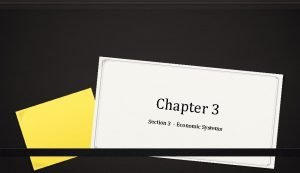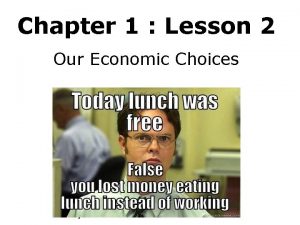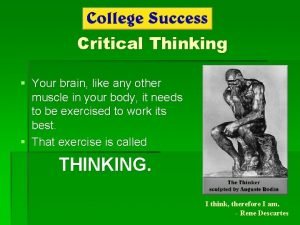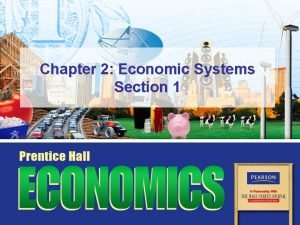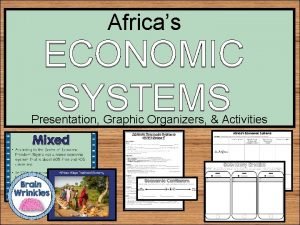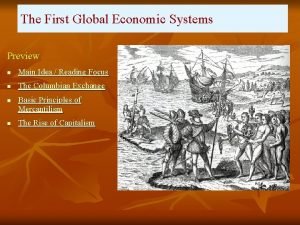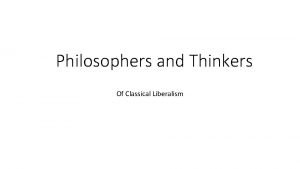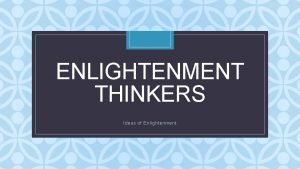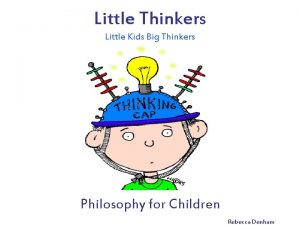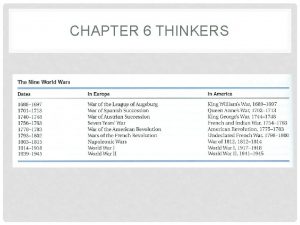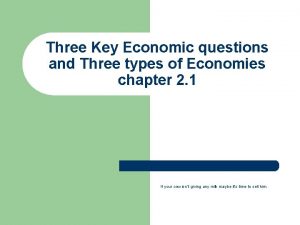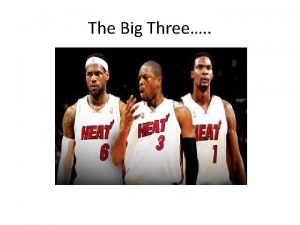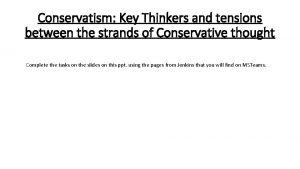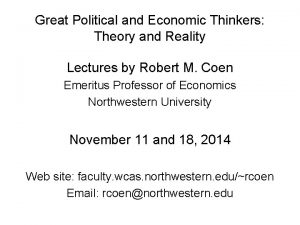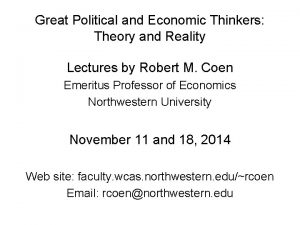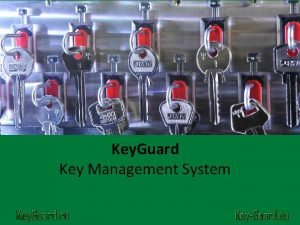Economic Systems and Economic Thinkers Three Key Economic












- Slides: 12

Economic Systems and Economic Thinkers

Three Key Economic Questions l l What economic goods will be produced? How will goods be produced? For whom will the economic goods be produced? Each economic system answers these questions in a different way.

Traditional economy l l l Skills are passed from parents to children Human and animal labor is used, rather than industrial machine power Traditional production used throughout history and still in many parts of the world today

Capitalism 1. 2. 3. 4. Socialism Private ownership 1. Public ownership of most property Market is used to 2. Government exchange goods economic plan used for key Profit is main decisions motive of production 3. Not for profit Synonyms 4. Synonymsmarket system or Command Economy free enterprise

Formula for determining government involvement l Share of economy consumed by government = Government consumption/Total Economy l E. g Sweden Government consumption=72 b. Total Economy = 259 b. 72/259= 35% government and 65% private l l (source Heritage Foundation)

Adam Smith l l Father of Capitalism Wrote Wealth of Nations in 1776 Called for free markets without government interference (laissez faire) “invisible hand” description of market

Karl Marx l l l Father of Communism Wrote The Communist Manifesto Believed that capitalism should be overthrown and replaced by socialism Under socialism means of production controlled by government Communism “from each according to ability, to each according to need. ”

Thomas Malthus l l l Viewed economics as the “dismal science” Believed that population would outstrip production Overpopulation would lead to a downward pressure on wages, leading to poverty and starvation

John Stuart Mill l Supported free markets Supported some forms of government interventions based on utilitarian principles Proposed a progressive income tax to redistribute wealth and fund government services for the poor

John Maynard Keynes l l l English economist believed government in a capitalist society could stabilize the economy He proposed increasing government spending and cutting taxes during a recession He is a main macro economic theorist

Alfred Marshall l l Neo-classical economist realized that both supply and demand influence price He developed supply and demand graphs used in microeconomic analysis

The Great Debate l l Do you think that the collapse of the Soviet Union and China’s movement toward markets indicates the triumph of capitalism over socialism/communism? Why or why not?
 Tony ryan thinkers keys
Tony ryan thinkers keys Nationalism edexcel politics
Nationalism edexcel politics Chapter 2 economic systems and decision making answer key
Chapter 2 economic systems and decision making answer key Chapter 2 economic systems and decision making
Chapter 2 economic systems and decision making Chapter 1 economic decisions and systems answer key
Chapter 1 economic decisions and systems answer key The three economic systems
The three economic systems Lesson 2 our economic choices
Lesson 2 our economic choices Critical thinkers are movers and
Critical thinkers are movers and Education health and famine comprehension check
Education health and famine comprehension check Chapter 2 economic systems answer key
Chapter 2 economic systems answer key Africa's economic systems cloze notes 1
Africa's economic systems cloze notes 1 Comparative systems worksheet answer key
Comparative systems worksheet answer key The first global economic systems answer key
The first global economic systems answer key
